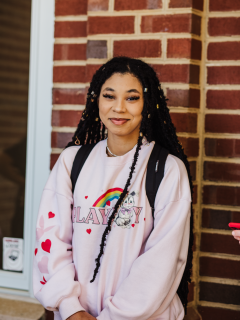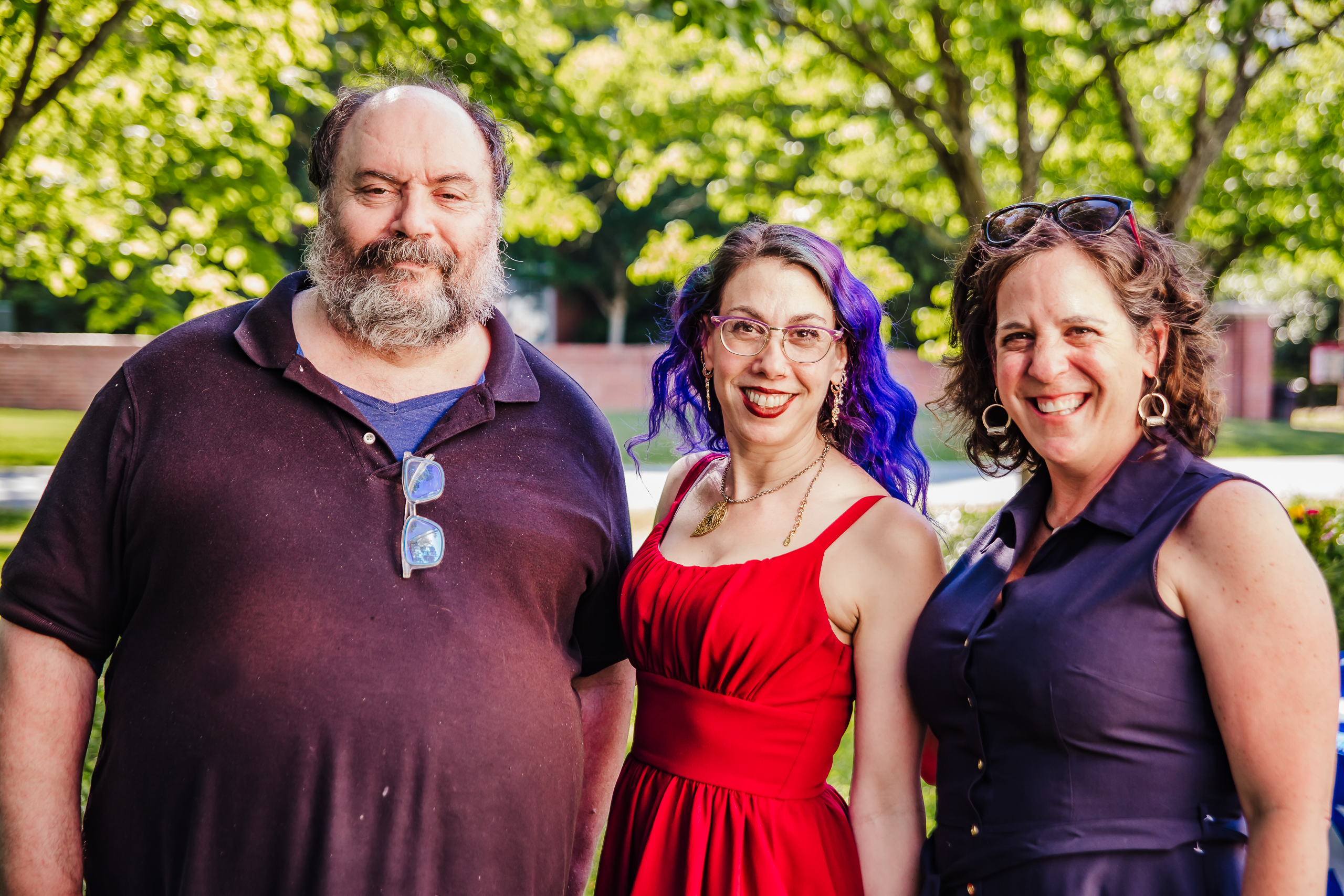Assistant Director of Jewish Life, Hillary Zaken, will also lead audit of Hillel’s physical space and communications and marketing materials.
As part of her work as a member of the inaugural cohort of the Avodah Institute for Social Change, Assistant Director of Jewish Life Hillary Zaken has made important changes to the Jewish Life mission to reflect a greater commitment to diversity, equity and inclusion. Zaken also plans to develop a toolkit and roadmap for inclusive language about Jewish identity and social justice.
As part of this work, Zaken will also embark on a comprehensive audit of Hillel’s physical space and communications and marketing materials to ensure that Elon Hillel’s welcoming message is explicit.
“At Hillel, we believe that in order to genuinely build and sustain a community in which all are welcome, regardless of identity, our words and our actions need to be aligned,” Zaken said. “Inclusive language acknowledges diversity and difference, promotes respect and greater understanding and asks community members to intentionally honor and welcome all students.”
Jewish Life at Elon “supports students’ journeys, no matter the destination. We are a welcoming, lively, and inclusive community that provides an empowering, innovative, and joyful Jewish experience for all students; inspires individual discovery; prepares students for life beyond college as leaders and community members; and embraces the dynamic diversity of Jewish traditions and identities,” the organization’s mission statement reads.
The word “identities” has been appended to the end of the previous mission statement, and the phrase “inspires individual discovery” replaces older language.

First-year Tia Wohl ’25, who identifies as a biracial Jewish woman, applauds the Hillel community for its welcoming and inclusive nature.
“I was definitely hesitant to participate and make myself known in the Jewish community at Elon. The multitude of stigmas surrounding people of color in the Jewish community arises from a place of unawareness and lack of education,” Wohl said. “However, my worries quickly subsided when I was met with open arms at Hillel. There was never a time when I felt invisible or overlooked. Both staff and students at Hillel have openly shared their commitments to learning and acknowledging diversity within the Jewish community and I have never felt more at home.”
Jewish Life at Elon falls under the umbrella of The Truitt Center for Religious and Spiritual Life, but Zaken is careful to note that many Jewish students on campus see their Judaism as an identity, not a religious affiliation.
“Creating space for students for whom Judaism is part of their identity rather than a religious affiliation, who may not actively observe their Judaism or who may not believe in God, is a crucial part of our mission,” Zaken said. “Our Jewish students at Elon have many identities in addition to their Judaism – students who identify as ALANAM (African-American/Black, Latino/Hispanic, Asian/Pacific Islander, Native American, Alaskan Native and Multiracial), students who identify as LGBTQIA+, students with disabilities and abilities of all kinds, students who identify as Mizrahi or Sephardi, and more. We want all students, no matter how they are Jewish or how Jewish they are, to feel welcome in our home, at our programs and in our community.”
The toolkit and roadmap for inclusive language which Zaken is developing for her Avodah Cohort project will help explain the nuances and diversity of the Jewish community. Zaken will also embark on a comprehensive audit of Hillel’s physical space at the Sklut Hillel Center, as well as communications and marketing materials to make sure that Elon Hillel’s welcoming message is clear.
Further, Zaken wants to make sure that Hillel’s space and these materials, including social media, accurately represent both the current makeup and the increasingly diverse face of the Jewish community in the United States. This will include more images of Jews of color, students who identify as LGBTQIA+, students with disabilities and abilities of all kinds, and students who identify as Mizrahi or Sephardi celebrating their intersectional identities.
“We are all Jewish and,” Zaken said, “Jewish and Black, Jewish and queer, Jewish and a woman, Jewish and Sephardi, for example. Our campus community wants and needs to celebrate this explicitly.”
This important work is in line with the university’s Boldly Elon strategic plan and the Division of Student Life’s divisional priorities, and may also be used as a model for other Hillel organizations across the country.
Elon’s Director of Jewish Life and Acting Associate Chaplain Betsy Polk said,“Ensuring our Elon Jewish community is welcoming, inclusive and equitable is a key tenet of what it means to fulfill the Jewish mitzvah of tikkun olam, repairing the world. Its importance can’t be overstated. I am grateful to Hillary for being part of the inaugural Avodah program and for bringing its teachings to Elon.”



